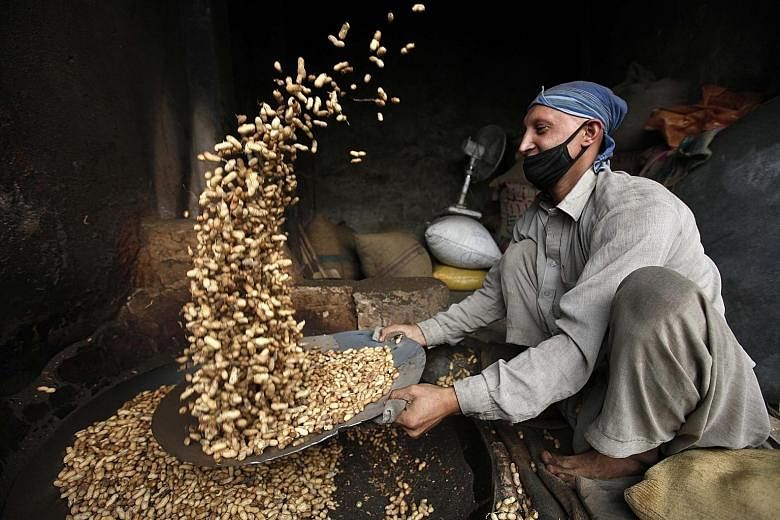WASHINGTON • In a significant reversal from past advice, new national health guidelines call for parents to give their children foods containing peanuts early and often, starting when they are infants, as a way to help avoid life-threatening peanut allergies.
The guidelines, issued by the National Institute of Allergy and Infectious Diseases on Thursday, recommend giving babies pureed food or finger food containing peanut powder or extract before they are six months old, and even earlier if a child is prone to allergies and doctors say it is safe to do so. One should never give a baby whole peanuts or peanut bits, experts say, because they can be a choking hazard.
If broadly implemented, the guidelines have the potential to significantly lower the number of children who develop one of the most common and lethal food allergies, said Dr Anthony Fauci, the institute's director, who called the approach "game-changing".
Could the guidelines mean the end of the peanut-butter-and-jelly sandwich bans so common in school lunchrooms? "If we can put this into practice over a period of several years, I would be surprised if we would not see a dramatic decrease in the incidence of peanut allergies," Dr Fauci said.
Peanut allergies are responsible for more deaths from anaphylaxis, or constriction of the airways, than any other food allergy. Though deaths are extremely rare, children who develop a peanut allergy generally do not outgrow it and must be vigilant to avoid peanuts for the rest of their lives.
"You have the potential to stop something in its tracks before it develops," said Dr Matthew Greenhawt, chairman of the American College of Allergy, Asthma and Immunology's food allergy committee, and one of the authors of the new guidelines.
It appears there "is a window of time in which the body is more likely to tolerate a food than react to it, and if you can educate the body during that window, you're at much lower likelihood of developing an allergy to that food", he added.
The guidelines, published in Annals of Allergy, Asthma And Immunology and several other journals, are an about-face from the advice given out by the American Academy of Pediatrics as recently as 2000, when parents were told to withhold peanuts from children at high risk for allergies until they were three years old.
Despite those recommendations, the prevalence of peanut allergies kept increasing. Ten years later, around 2 per cent of children in the United States had the allergy, up from less than half of 1 per cent in 1999, and the academy started retreating from its advice, which did not seem to be working.
The new guidelines grew out of several studies conducted in recent years that challenged the advice to ban peanuts in infancy, long a standard practice in the United Kingdom, Australia and the US.
NYTIMES

